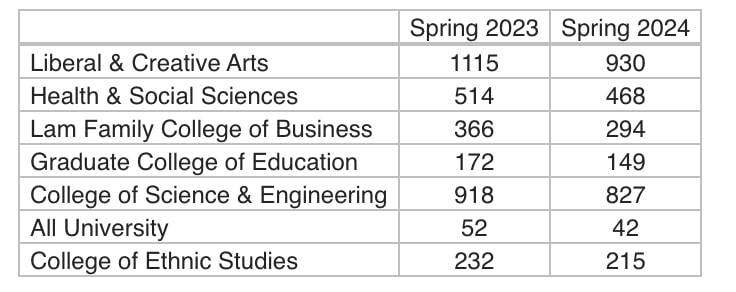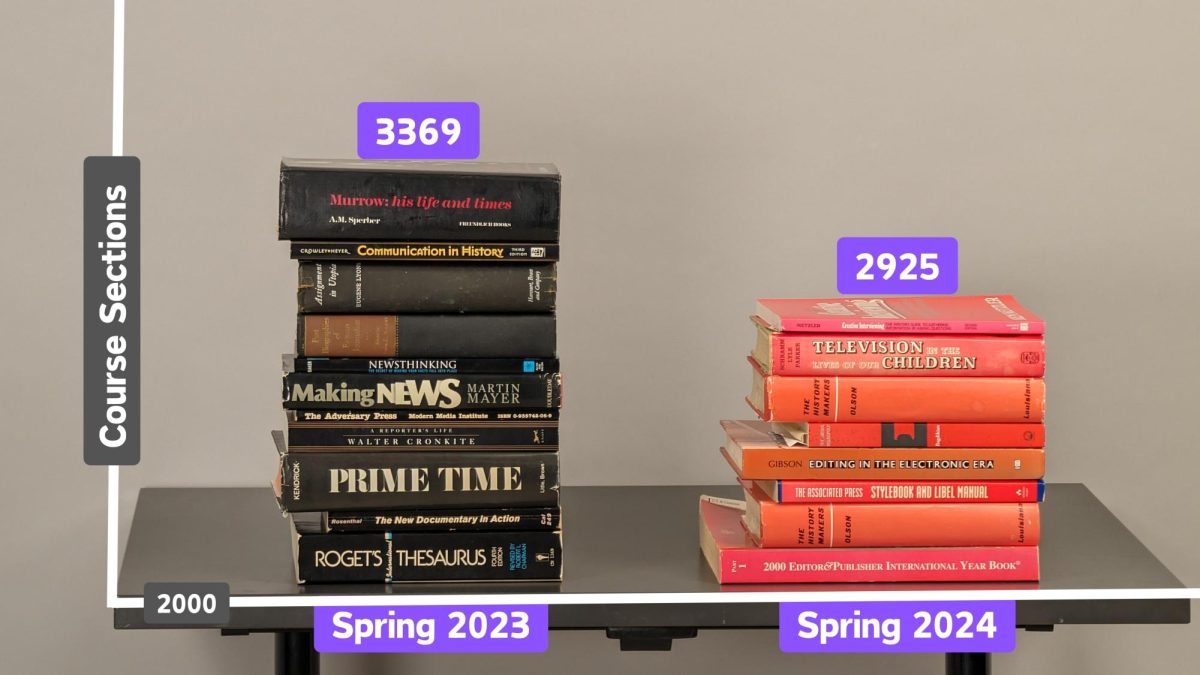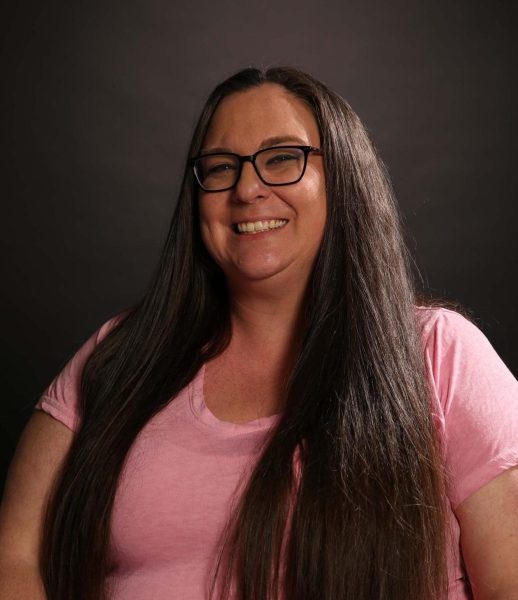The class schedule is out for the Spring 2024 semester, showing a 14% drop in class sections from the spring schedule in 2023, leaving students wondering if they can graduate on time.
Sofía Lopez, an interior design major, expects to graduate next semester, but a class she needs to graduate was cut from the spring schedule.
“I received an email by the department chair that one of the core classes I need in order to graduate was not going to be offered in the spring,” Lopez said.
In a letter sent to staff last month, Amy Sueyoshi, provost and vice president of
academic affairs, reassured staff that the school would keep students on track for graduation and the class cuts would not affect their requirements.
“We will continue to offer students the courses they need for graduation,” Sueyoshi said.
The Spring 2024 schedule has 2,925 course sections across all levels, compared with 3,369 in Spring 2023, according to Kent Bravo, San Francisco State University’s media relations specialist.
The Department Chair of Family, Interiors, Nutrition & Apparel, Dr. Gus Vouchilas, told Lopez that other students were in the same position and that the department would accept an online independent study course to fulfill the requirement.
JP Misheff, a philosophy and religion major, has also noticed a positive response from his department.
“If it weren’t for the utterly stupendous leadership of the philosophy department, I’d be freaking out right now,” Misheff said. “But they are bending over beyond backward for those of us most impacted.”
Lopez noticed fewer class sections offered, taking away the flexibility to balance her
other commitments.
“I commute to campus and I also work, so I like having different options of days and times a class is offered in order to create a balanced schedule,” Lopez said.
Some students are feeling the larger effects of the cuts in the schedule.
“Starting in the spring, there will be precisely zero religion classes offered at SF State,” Misheff said. “The new schedule has literally zapped most of my required classes off the map. It feels surreal, halfway through an academic year, to be facing the elimination of the major you planned to graduate within the spring.”
English professor Geoffrey Green believes the class cuts could slow down progress for students’ major requirements.

“Students have expressed to me their fears and frustrations,” Green said. “The effect on fulfilling university requirements may be deleterious as well.”
Green adds that the department is doing everything possible to alleviate those effects.
“This may be an appropriate way to run a mega-corporation, but it is most certainly a frustrating way for a university to function,” Green said.
Classes aren’t guaranteed to be available if low enrollment continues to affect SFSU, and classes don’t have enough students to continue.
“My courses have very low enrollment and they have been at risk of being cut, which is insane because I’m in the Chinese program and SFSU is known for its Chinese program,” Underwood said.
Reduced classes and low enrollment have other ripple effects as well, which are an
added stressor for students.
“Many of us are still recovering from the financial strains left by the pandemic. The drop in enrollment is a very clear example of the effects of raising tuition,” Lopez said.
“It is very trickle-down from the schedule because I am running out of money,” Underwood said.
Underwood added she is from a low-income family and lives in low-income housing without any extra support. She began her education at a community college and chose SFSU, citing its affordable tuition as a key factor in her decision.
“I did everything you’re supposed to do, but somehow the price of college is still feeling out of reach for me and worrying me,” Underwood said. “The thing is I’m stuck –– there is nothing I can do. I can’t go to a different school just because the price will be cheaper. There are no options for me.”
The choices to the cuts have further ramifications, according to Misheff.
“With world events being as they currently are, the decision to get entirely rid of religious studies is stunningly out of touch,” Misheff said.









